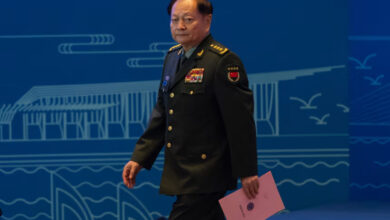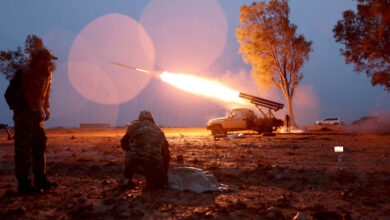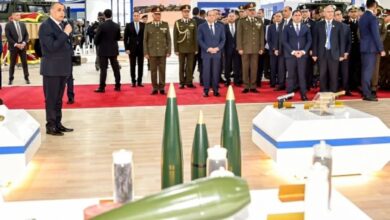Protesters from various political groups gathered in Tahrir Square on Friday to break their Ramadan fast.
Several political groups and some Sufi orders decided to organize a Tahrir protest to emphasize their demand for a civil state after Islamists made a show of force in a 29 July protest, calling for an Islamic state.
But the run up to Friday's protest was mired in confusion as those who had organized the "For the Love of Egypt" protest disagreed on whether to hold it then or next Friday.
The head of the 6 April Youth Movement, Ahmed Maher, told Al-Masry Al-Youm that negotiations with the cabinet of Prime Minister Essam Sharaf were behind the confusion.
"The prime minister's office had given promises in exchange for delaying the march, and these were to release a statement supporting a civil state and endorsing the march the following week. They did neither, so we are here today," he said.
Some of the Sufi orders and Coptic Christian groups that had called for the protest also decided to go to the square on 12 August.
Sufi leader Sheikh Alaa Abul Azayem told Al-Masry Al-Youm that he would have preferred to delay the march another week but it was put to a vote. He admitted that the to-and-fro about the date led to lesser numbers showing up.
On coordination with the military prior to the march he said, "We agreed with them that traffic would not be stopped in the square."
In conjunction with the Sufis, Coptic Christians we present in the square, spearheaded by the United Youth of Maspiro Group, which has staged sit-ins in the past few months in front of the state television premises, known as Maspiro, to demand the rights of Copts. Michael Morkos, a member of their general committee, said, "We're here to have iftar with our fellow Muslims to say we are all one hand and won't allow anyone else to say otherwise," alluding to Islamist calls for a religious state.
"After 29 July when Tahrir became Afghanistan, people insisted on coming down today to save Egypt by calling for a civil state," he added.
These sentiments were echoed by a Muslim protester, carrying a sign saying revolutions were done by crazy people and the rewards reaped by opportunists. Saeed Abdel-Rehim Morsi said, "I'm here for the Salafis. Where were they in January? I didn't see them. The revolution helped get them out of prison and we will not let them usurp it."
However, as the day went by more protesters, unaffiliated with Sufis or Coptic groups, began to chant against the armed forces and their insistence on keeping protesters away from Tahrir.
Sahar Salem, an accountant from Banha who had come down specifically for the protest, said, "It's our right to protest in a peaceful manner. Why is the army taking over the square like this? This is the right we attained with the revolution and the square belongs to Egyptians. The people have become the source of power and they want us to forget that and fear again, but we won't."
Clashes between protesters and the military occurred a little after 8 pm, but only lasted a few minutes before calm prevailed.
Protesters had begun marching around the square chanting against the military and its head, Field Marshal Hussain Tantawi, as well as calling for a civil state, and not a religious or military one. They also called for the military to evacuate the square.
Military and police forces amassed in the garden at the center of the square and clashes began when protesters neared the area. Pushing began at the front as one protester who had climbed the garden's wall was taken inside the garden, according to an eyewitness.
Army soldiers at the front began hitting the front-line protesters with batons. Rocks were thrown by both sides as protesters were pushed back.
The army has occupied the square with heavy troops since breaking up the open-ended sit-in that began on 8 July, which was primarily held to demand justice through free and immediate trials of the toppled regime's figures and the killers of the revolution's martyrs. Ever since, Central Security forces have surrounded the main roundabout in the square to halt any attempt by protesters to come back.




